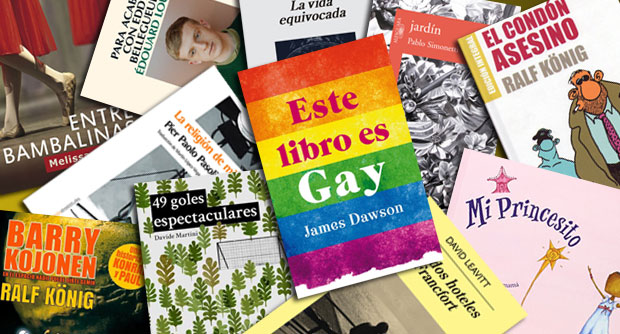
Eleven years ago the “closet reading Club” began to develop in the Santiago Regional Library, c on the purpose of generating a space of ‘literary activism’ in public libraries, and encourage meetings of reading visibilizaran the community LGBTIQ +.
The librarian documentalist and mediator of the club, Sebastián Santander, says El Mostrador that this initiative calls for “reflection and debate on the themes of sexual diversity as vital experiences, political gestures and socio-cultural references” .
“In times that run, it becomes more urgent even open these spaces for reflection, critical thinking and making visible possible enrichments that shared, social and collective reading can deliver us”, he says.
With the passage of the years, the “Club of readings of wardrobe” began to conduct monthly meetings to discuss recognized literary works by authors such as Pedro Lemebel, Sarah Waters, Eduardo Mendicutty, Hernán Rivera Letelier, among others.
In this range of “Bibliodiversity”, Pedro Lemebel became one of the most widely read authors of the club, installing “reflections upon the bodies and their identities, but also demonstrating that the change has not been as radical or so drastic as is intended, as its” Proclamation remains in effect”.
Reading as “social and political practice”
For the lawyer and mediator, Carmina Vásquez, reading in these meetings involves a “confrontation between rhythms and motivations that reconfigured, deconstruirse and recognize is in the other”.
“This is a club that is mostly made up of members of the LGBT community, then is a space of visibility and strength”, describes the lawyer and adds that they share “experiences, fears, and common dreams that they find through reading (…). We accompany us and find refuge in them.”
International literature LGBTIQ + partnerships
Since the books focused on sexual diversity and gender are few, the “closet reading Club” established alliances with international publishers to expand the possibilities.
In this context, the Spanish publishing house “Two whiskers” specialized in LGBTI issues, donated books to the club and allowed the approach of “realities of sexual diversity” from as far away as Africa, which could come through “Wishes related”, the book of African stories against homophobia.
-What is the criticism that would make publishers with respect to literature LGBTIQ +?
-Missing more political gestures in the publishing world, which not only give relevance to the publication of books for sale, but see that put books in circulation generates social, cultural, aesthetic and of course political impacts.
"El reclamo puede ser genuino, pero construido sobre una mentira", apuntó el presidente Javier Milei…
El gobernador de la provincia de Buenos Aires, Axel Kicillof, encabezó un acto en Ensenada…
El diputado nacional de La Libertad Avanza, José Luis Espert, expresó su confianza en la…
Tras la masiva reaparición de Cristina Fernández de Kirchner, el presidente Javier Milei apuntó contra…
El principal propósito de la nueva comisión es evaluar los recursos humanos en el Senado,…
En una medida que busca redefinir las condiciones de los seguros de automóviles en Argentina,…
Esta web usa cookies.